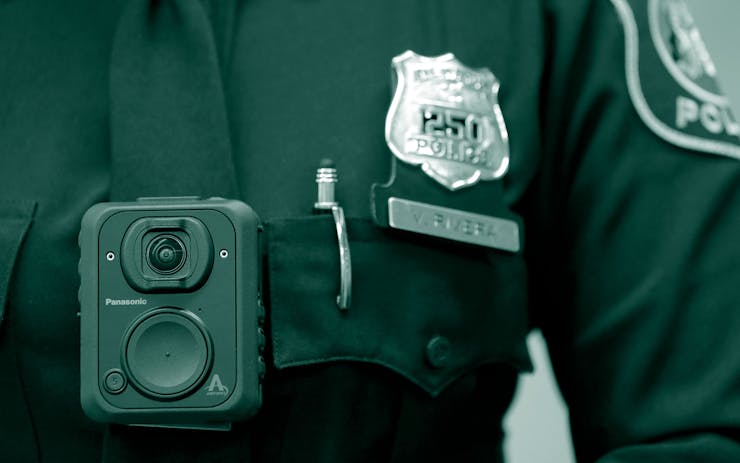The Massachusetts Cannabis Control Commission (CCC) has drafted new proposed regulations for cannabis delivery. But one of the proposals has sparked concerns around consumer privacy.
The draft regulations unveiled in July for the adult-use industry would require delivery drivers to wear a body camera any time they are outside their delivery vehicle—which is also required to have cameras—and to record all transactions. The video of those transactions would be stored for at least 90 days and would have to be made available to the CCC or law enforcement if requested.
Law enforcement is advocating for this regulation based on concerns that delivery staff will be the target of crime. Walpole Police Chief John Carmichael sees the proposed regulation as protection, saying, “Unfortunately, there is crime, violent crime, that’s been committed here in Massachusetts in the illicit side of the market. People have been killed. There is no reason for us to believe that won’t extend … into the legal market.”
Matt Allen of the American Civil Liberties Union (ACLU) disagrees, saying legal delivery workers will be less likely to be victims of theft or violence than illegal delivery workers. “The whole benefit of legalizing marijuana is to bring these activities out of the shadows. Because this is now legal and regulated they are less likely to be targets of crime, just by the very fact that they can report it to the police,” he said.
Concerns for Privacy
Beyond the threats of theft and violence, privacy for consumers is the biggest concern among opponents of the regulations. Because cannabis is federally illegal, recording the buying of cannabis or an address that receives cannabis can be dangerous not just for privacy, but for a person’s freedom.
“It seems, frankly, irresponsible for the state to approve of a system that would allow federal agencies such as ICE, for instance, to be able to access body camera footage, to expose consumers of Massachusetts to federal prosecution,” says Allen.
“Also, because law enforcement has unfettered access to footage of the body cameras, it presents a greater threat to civil liberties than surveillance used by, say, liquor stores and pharmacies. Those businesses aren’t bound to laws where they have to give law enforcement access at any time without showing probable cause,” he continued.
Body Cams May Increase Social Disparity
Another issue of concern is the economic burden these businesses face with all of the proposed regulations. If passed as is, not only will delivery staff have to wear body cameras, but delivery vehicles will have to include two delivery workers, be equipped with GPS trackers, have a video system that includes one or more video cameras in the storage area of the vehicle, and one or more video cameras in the driver area of the vehicle.
Delivery licenses have been set aside for Economic Empowerment and Social Equity applicants, to make up for inequities in licensing for business owners impacted by the war on drugs. However, according to Joe Gilmore, president of the Massachusetts Recreational Consumer Council, these proposed body camera requirements and all other required technology are actually making equity harder to achieve.
“Equipment and data storage costs will ultimately fall on the consumer. There’s no reason for delivery licenses to be so capital-intensive when such stringent regulations have never been required for existing alcohol delivery operations as Drizly, pharmaceutical delivery, and Amazon,” says Gilmore.
Shop highly rated dispensaries near you
Showing you dispensaries nearThere is also a lack of data that delivery staff will be victims of theft. Mike Dundas, CEO of Sira Naturals, chairs the Cannabis Advisory Board’s Industry Subcommittee. The subcommittee unanimously recommended that body cameras be struck entirely from the regulations.
“There are enormous privacy considerations and they have not been counterbalanced with any data indicating it’s any more dangerous than pizza delivery. Show me the data and I’ll be the first one to change my mind,” says Dundas.
Dundas, who has been in the business since the medical program started in 2013, sees history repeating itself: “We saw this when the medical program started and we see it as the adult-use program evolves. There is an outsized, exaggerated fear around things like public safety, underage abuse, impaired driving. Not to say those things aren’t critically important, but relative to the data, the fears are outsized.”
The CCC will reconvene the second week of September to debate any changes commissioners believe are necessary and then vote to finalize regulations.





